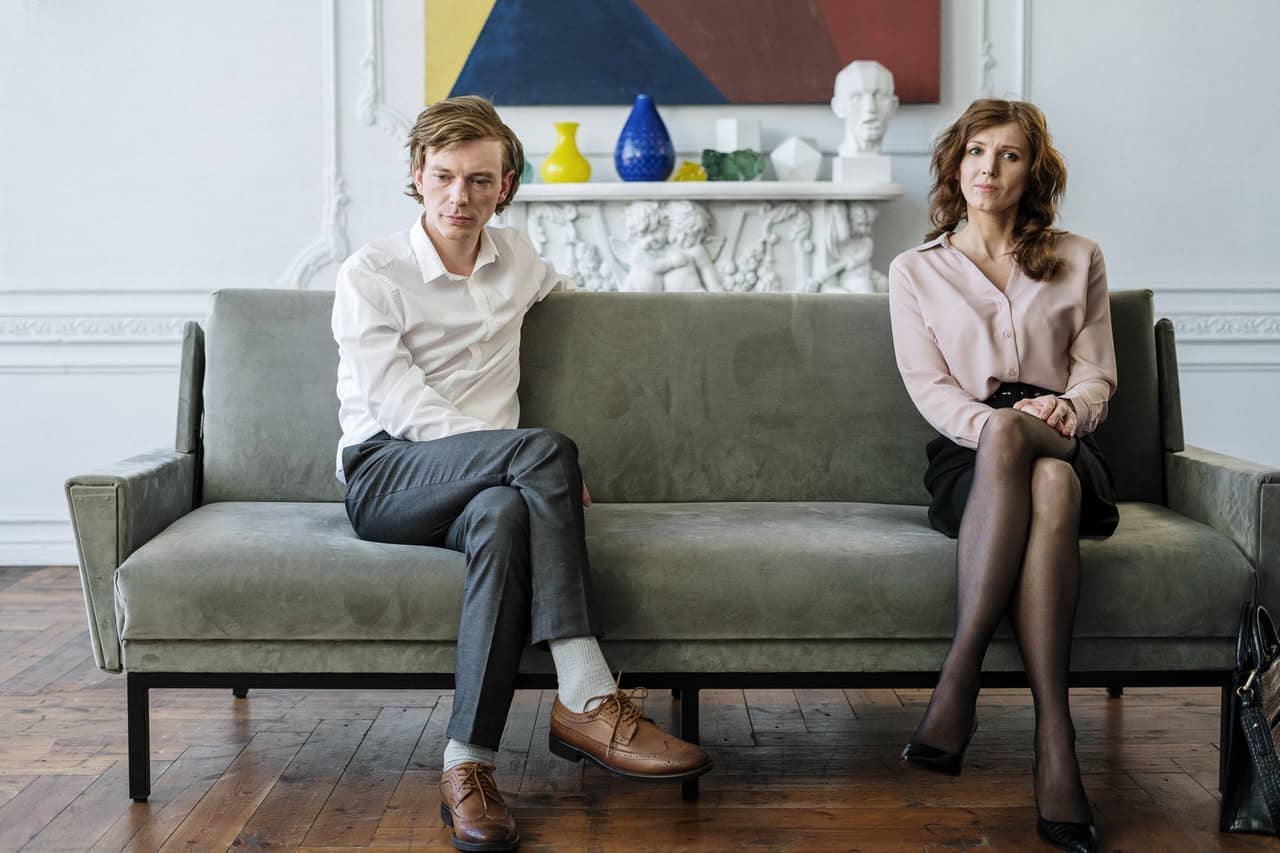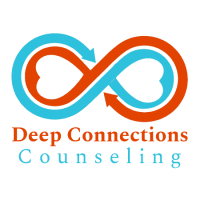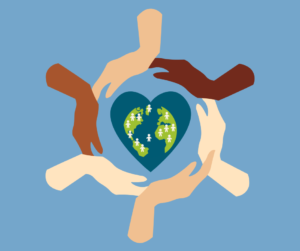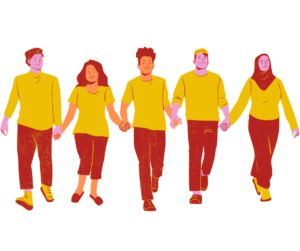Do you believe there is work to be done on your relationship? Learn how couples therapy can help improve your communication, resolve conflicts, and strengthen affection. Explore the benefits of expert guidance and support to form a healthier, happier partnership.
Relationships are hard work and require persistent care and attention like a living animal depending on you, and could easily be treated as such. However, unlike a loving pet or infant, a relationship between two adults has much more complicated issues and intricate social mechanisms that it depends on to survive.
Additionally, because both adults have unique responsibilities and backgrounds, and because our emotions and our lives will not be perfectly in sync with our partner’s, conflicts may be more common than we would like. When issues come about, as almost all relationships will encounter, the couple is faced with three options:
- To deal with the issue head-on
- To ignore and forget
- To break up
Evidently, it is better to tend to issues when they arise, rather than risking further complications down the road. However, we are not perfect; it may be much easier to fight, demand, or ignore rather than make ourselves emotionally vulnerable to someone who has just hurt us. Oftentimes, we are able to repair our relationship ourselves. We are able to open ourselves emotionally to the other person and connect in a way that we once lacked.
Other times, no matter how hard we try, it may be the best possibility for the relationship if a third party couples counselor is able to analyze our relationship and offer points of advice that have helped thousands of other couples.
What is couples therapy?
A Licensed Marriage and Family Therapist (LMFT) works to help two people in a romantic relationship to resolve conflict and promote relationship insight and satisfaction by
- focusing on a specific issue
- establishing a strategy that is focused on finding a solution
- promoting positive change in the relationship itself, rather than the individuals in the relationship
A study of over 300 couples with moderate to severe marital problems showed that the couples that were selected to attend a few (less than nine) couples counseling sessions showed significant improvements in relationship satisfaction, individual mental health, and coping strategies.
The study additionally utilized a follow-up on the couples in the treatment group two years after the study, which showed that the results did not change and in some regards even improved with time.
How will couples therapy improve my relationship?
As stated above, the main goals of couples therapy is to resolve conflict and introduce behavior and recognition styles that promote relationship satisfaction and positive change. This goal can be accomplished by several different methods developed and practiced for decades by therapists and counselors all across the world. Each method utilizes different clinical techniques based on thoroughly researched psychological concepts.
Therapists may determine which strategy would be most effective by analyzing the situation and choosing accordingly from this list of strategies. Their decision may depend on
- their own beliefs and orientations
- the setting and context of the situation
- the established objectives of therapy
Described below are some of the more popular methods of couples therapy.
EFT – Emotionally Focused Couple Therapy
EFT is a highly successful method for relationship counseling and is based on attachment theory. This theory states that one’s idea of what love should be depends on one’s early relationship with a primary caregiver, typically a parent.
EFT emphasizes the importance that we as social human beings place on our emotional needs. Research suggests that when our emotional needs are no longer met by the person that we once relied on for emotional fulfillment, we may either choose to distance ourselves from that person or become more demanding of the other, which can lead to positive reinforcement of a negative emotional cycle.
By creating an environment in which honesty and transparency is prioritized and emotional truth and expression is encouraged, individuals are able to recognize the negative cycle of unhealthy expression patterns and the role that they play in it. This cycle of emotional disconnection can be broken through corrective bonding experiences.
As Psychology Today puts it, corrective experiences are emotional interactions that help patients to experience emotions that have been relegated or suppressed as a method of adapting to difficult and emotionally painful events. This suppression begins as evolutionarily and emotionally adaptive; however, in adulthood, the subdued emotions as a result of a painful experience contribute to the adult’s maladaptive behaviors.
In the context of couples therapy, corrective experiences involve bringing to light the causes of the emotions that help to fuel the negative cycle. By focusing on emotional responsiveness, individuals in a relationship will be more likely to deal with these emotions in a healthy way, breaking them out of the cycle of negative coping patterns.
With EFT, our psychologists help couples to connect to their relationships rather than disconnecting, turning towards each other in times of emotional need.
Gottman Therapy
The Gottman therapy strategy aims to face relationship issues head on rather than primarily focusing on the emotional aspects of the relationship. The first step of Gottman therapy, like most other couples therapy strategies, is identifying the issues of the relationship. However, in contrast to EFT, Gottman therapy emphasizes more of the tangible verbal conflict and barriers that initiate feelings of inaction and prevent empathy and understanding.
Gottman therapy may prove particularly useful when the couple has been distracted from or lost interest in the relationship, but for one reason or another, the emotional connection may still be there. Some of these reasons include but are not limited to
- Frequent verbal conflicts that result from or result in poor communication
- Specific problems such as money, sexual difficulties, and parenting
- (“The Gottman Method – About.”)
If a couples counselor sees that there are obvious tangible boundaries which inhibit “intimacy, respect, and affection” (“The Gottman Method – About.”, 2021), such as those listed above, they are able to target these specific
Psychobiological Approach to Couples Therapy (PACT)
The PACT institute describes this approach as a fusion of attachment theory, developmental neuroscience, and arousal regulation. While most couples therapy techniques and even many individual therapy techniques are also developed on the basis of attachment theory, this technique is unique in that it works through our understanding of how we control our emotions and alertness through the lens of neuroscience, or the study of the human brain.
First learning about the issues most prominent in your relationship, the therapist will gain a better understanding of the troubling experiences. Then, the therapist will usually simulate an experience similar to those described as some of the main difficulties in the relationship. This may seem counter-intuitive, as other techniques may actually focus on trying to stay away from these encounters. However, the therapist may intentionally reproduce stressful situations in order to interpret how each individual in the relationship reacts in his/her face, body, behavior, and voice.
By walking each individual through the process of reconnecting with their body and mind and those of their partner, they may learn how to do this inside their own home. The couple is then much more able to be fixed in the present, rather than on past issues or future anxieties.
This process of connecting with the self is consistent with contemporary meditation experts that say that the key to removing anxiety from your life is by being fully present with yourself and your partner.
It should be noted that most couples counselors will likely use techniques from a variety of combinations of these methods. Counselors are trained to gain insight from a relationship as one of the first steps of therapy and outline a partially customized strategy designed specifically for the clients’ relationship.
FAQs about couples therapy
Who should use couples therapy?
The answer to “who should use couples therapy?” is the same as the answer to “who should get therapy?”: anyone.
It does not depend at all on:
- Sexuality
- Your age, race, or religion
- The stage of the relationship (dating, engaged, married)
Attachment theory states that any and all humans, regardless of any factor, need emotional support in one form or another. Therefore, any relationship between two humans that is lacking in emotional reliance in any form may benefit from couples therapy.
Nonetheless, even couples that do not have persistent problems may still benefit from couples therapy. For example, a recently engaged couple may look toward a couples counseling professional to get insight on what to expect in their marriage in terms of how to make a marriage work, how to respect each other’s space, how to raise children properly, etc.
Even couples who have been married happily for decades may benefit from couples therapy. Couples therapy may provide tips and techniques to continue to nourish a healthy relationship or provide more ways to generate excitement and happiness to happily married couples.
How long does couples therapy last?
Couples therapy typically consists of around 15 sessions, but can vary from 8 to 20 sessions, varying on the status/setting of the couple and on the theoretical orientation of the clinician.
When should couples elect to undergo couples therapy?
Short answer: Any time. Couples counseling can solve marital problems, improve suffering marriages, enhance happy marriages, and counsel new marriages.
Long answer: Any time. However, Couples counseling may be out of a couple’s budget, both in terms of money and time. If so, this should not in any way be a sign to throw in the towel. There exist thousands of websites, books, podcasts, youtube videos, etc. that are available for free. While there may not be a certified professional counselor guiding you in real time, it is important to recognize that the power to generate positive change and improve marriage satisfaction is in the hands of the individuals in the relationship.
Can my significant other and I go to couples therapy even if we are not married?
Couples therapy has been proven effective for couples regardless of age and whether or not the couple is married. Couples counseling can provide insight and enhance individuals preparing for engagement, or even couples whose horizon does not see marriage in the proximate future.
Can couples counseling improve our sex lives?
Yes. In fact, sexual difficulty is one of the most common causes for stress in a marriage. Uncoincidentally, sexual difficulty is one of the most researched areas of marriage satisfaction and thus almost all relationship counselors are trained at least generally in this area of therapy, with some in the field are specifically trained in this area.
Can couples therapists be unsuccessful or suggest divorce?
Couples counselors are trained in identifying and solving issues relating to relationships between two people. They are often experts in recognizing and slowly offering advice and healing strategies to deeply embedded issues in a relationship just by knowing two people for a few weeks.
To suggest divorce is thus simply a matter of opinion. Because a counselor is obligated to act objectively and not out of personal beliefs or opinions, suggesting divorce is likely not going to happen in a therapy office.
If the couple asks the therapist “should we get a divorce?”, the therapist will likely tell the couple that it is ultimately their decision what they should do. Meanwhile, it will continue to be the therapist’s job to offer their insight on how they believe the relationship may improve.
On the part of whether a counseling therapist can be unsuccessful: sometimes one marriage counselor is not enough. Sometimes the couple may receive all that they can from one counselor and still require more help. Other counselors may be able to offer new techniques that are more fitting to their situation and advise them more beneficially.
How much does couples therapy cost?
The typical couples counseling session should be around 130-180 dollars for 60 minutes, with rates changing with different time lengths.
However, couples therapy licensed in improving relationship satisfaction through clinical psychology can depend on a few factors:
- The credentials of the therapist
- The time of each session
- The specific type of therapy
How will COVID restrictions affect the effectiveness of couples therapy?
This is a common worry in the age of COVID: that because therapists are not able to see the client in person, they lose some ability to observe the patient, which is central in a therapist’s ability to assess and diagnose a client. Be it as it may, the tone of voice, body language, and demeanor provide necessary and sufficient insight into the client’s well-being.
Valid concerns arise out of this situation. Will the therapist be able to develop the relationship with the client that is necessary for effective therapy? Will the therapist have the power to intervene if the situation becomes an emergency that needs direct and immediate action? Despite these, several studies have proved that these concerns are not determinative of the efficacy of online therapy.
A meta-analysis (an analysis of multiple analyses) of 92 studies of the effectiveness of online therapy with 9764 total clients revealed no differences in effectiveness. Other studies have found online cognitive behavioral therapy is, effective, acceptable, and practical health care. The study found that online cognitive behavioral therapy is as effective as face-to-face treatment for major depression, panic disorder, social anxiety disorder, and generalized anxiety disorder.
If couples therapy is so useful, why don’t more couples use it?
This is a fair question. It is not very popular to hear about couples in therapy, and when we do, it is usually represented in pop culture as something to be ashamed about. This, in fact, may be one of the reasons why we do not see much representation of couples therapy.
People begin to see couples counseling as something to be ashamed of, composing a society in which therapy is stigmatized. The reality is that about 44 percent of couples who get married today go to marriage counseling at least once in their lives. It is unlikely that a marriage will not see its own set of challenges and to expect such is wishful thinking that is not the case under most circumstances.
Couples will almost undoubtedly face issues and if/when they arise, it is important to keep in mind that couples therapy is a useful tool to offer helpful relationship advice that has worked on 7 out of 10 couples that tried couples counseling.
What to expect in couples therapy
No two counseling sessions will be the same. Variables include counselor beliefs, relationship background, relationship demography, and cultural background. In the first session, known as evaluation, the counselor will usually begin with questions regarding these variables, trying to get a better insight on the status and setting of the relationship.
As the sessions continue, the therapist will then begin the phase of identifying the focus of the treatment, usually an issue that is central to the relationship’s conflicts. Having identified the focus of the treatment, the therapist can then begin the treatment phase, in which the therapist will help the couple identify the relationship mechanisms that are causing/inflating the damage to the relationship.
The rest of the sessions are spent offering advice on how to change behaviors and perspectives in a positive light such that when issues or conflicts arise again, the couple will have the strong basis of conflict resolution skills needed to move forward from the conflict. It is important to understand that couples counseling does not remove conflict from the lives of the individuals. Rather, it teaches the couple to deal with these conflicts in a more healthy manner.
Most couples will come away from couples counseling with a new skill set to understand, appreciate, and empathize with their partner.
Get the Help you need for your Relationship
In the end, what matters is that you are happy, your partner is happy, and your relationship is healthy. In a perfect world, couples would never fight. In a more realistic world couples fight, and sometimes walk away feeling worse than they started, often internalizing pains and hurtful emotions that may have been felt during the conflict. If this is the case for you and your relationship, couples counseling may be helpful for your relationship.
We here at DeepConnectionsCounseling understand that relationships are hard because people are complex, and therefore our relationships and issues are complex. We are highly trained to hear your story, identify the issues, and offer strategies that have been scientifically tested and refined to resolve conflicts between two people in a loving relationship.
We want to hear your story and offer our trained professional insight. Call us at (757) 704-5558 or contact us to find more information. No matter the issue, we are prepared. No matter the context, we are trained to help. Schedule your first appointment!

Kinga Gudor, PhD
Kinga is a Licensed Clinical Social Worker (LCSW) with more than 15 years of experience. She specializes in couples therapy and working with individuals from a multicultural background.









